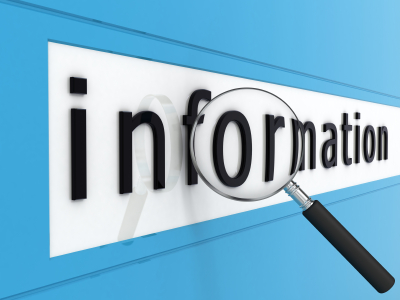 If you’re anything like me, your day starts by hitting the snooze button a few times while negotiating with yourself about what is a responsible time to get out of bed.
If you’re anything like me, your day starts by hitting the snooze button a few times while negotiating with yourself about what is a responsible time to get out of bed.
Once up, my next step is to open my laptop and respond to any e-mails I might have received during my slumber. Then, I move on to a few social networking sites. After that, I take a quick look at my favorite news website, and finally, I make my way out the door. Without thinking about it, so anyone willing to pay attention can use it to their advantage. The thing is – someone is paying attention. Everyone from retailers to internet service providers are paying close attention to our spending habits, social networking connections, political association, and even our diet. The amount of data that is produced by a single person on a daily basis is incredible – and valuable to every business.
Over time, this data has to be stored, analyzed, and processed. But how do you exactly store petabytes of data? More importantly, how can you get access to it without having to wait days for the system to sort through it? This, in essence, is Big Data.
Information Overload
Big Data is described as “data sets whose size is beyond the ability of commonly used software tools to capture, manage, and process the data within a tolerable elapsed time.” Other examples of Big Data include internet search indexes, medical records, photography archives (Facebook, Flickr, etc.) and e-commerce as a whole. If you’re a publisher or have any type of e-commerce business, you know how important it is to capture data from your web traffic. When bombarded with raw data, how can you put it to use so it benefits your business? This is a problem every business encounters (and has to solve) in order to benefit from consumer data.
Big Data Week – Making a Big Buzz About Data
All this information is so valuable that a global community of scientists, data visualizers, and data technologists will meet around the world to discuss how Big Data can be managed and analyzed by companies. This global meet up is called Big Data Week. Starting April 24th and culminating on April 28th, topics like social data, data mining, digital analytics, infrastructure maintenance, and ways to meet commercial needs will be discussed in San Francisco, Berlin, Sydney, London and New York.
Walking The Fine Line Between 0s & 1s
Finding ways to exploit and manage all this information has become a big concern among consumers and large industries alike. Consumers and consumer advocate groups are keeping a watchful eye on companies who have access to this type of information, mainly in order to maintain a certain level of privacy where there is seemingly none.
A Wall Street Journal study discovered that websites have an average of 64 different tracking tools that collect information on their visitors. With this type of information in hand, data mining companies are able to identify an individual and their preferences without having any access to their personal information. This makes many consumers a little uneasy, and with good reason.
You, as a business owner and/or publisher should do everything you can to keep your visitor’s privacy intact while – legally – using the data you have available to move your business interests forward. Finding the right balance between the two can translate into happy customers and extra dollar signs for you.